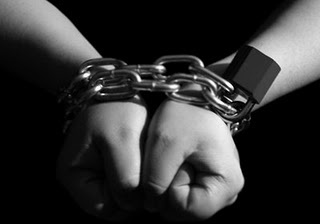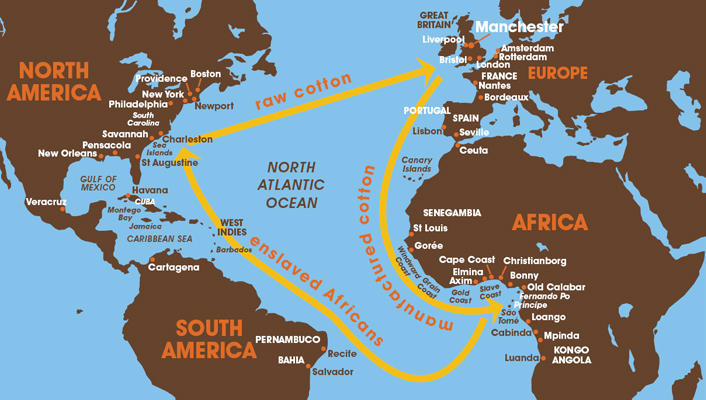There is still slavery?!
You may wonder why anyone would not want to escape enslavement.
The thing is, when people get into human trafficking (human trafficking is the act of transporting people illegally to become slaves in another part of the world) and become slaves, they were usually lured in by false promises. They were told that they'd be able to earn money for their families, (this is a big reason for young children to work) or they would be given a fake proposal - and when they moved to the new country, they were trapped in human trafficking. People trapped in this illegal market work for little to no pay, and are abused physically, emotionally and sexually if they don't comply.
Types of modern day slavery - and what is it actually?
Slavery is defined as being bound in servitude - being the property of an individual or a family. There are several types of modern day slavery.There are sex slaves - people who are sexually abused for the aforementioned reasons (for drugs, food, shelter also), or who have been sold by their parents, boyfriends, husbands. Others were kidnapped.
Child soldiers shouldn't even technically speaking be a problem. International law states that children under 18 are prohibited in warfare, and yet several countries still use them. Children are small and can easily get into areas an adult cannot, and their enemies can be swayed by the youth of a child. Who would readily shoot such a young person?
Rehabilitation centres are available for child soldiers, but no structured programming exists and it often falls short.
"Girls, including girl mothers face particular obstacles in obtaining release and accessing appropriate support for their recovery and reintegration. The failure to address the needs of girl soldiers is often linked to broader gender discrimination, which can be reinforced by discrimination in the context of programs for release and reintegration of child soldiers." (source)
For more information on child soldiers, check out this site. Many others exist, and I highly encourage you to continue researching this topic - or any of the others.
Who is it affecting?
Like you may be able to infer from the above paragraphs, it affects all of us - but most of all, the slaves. These people have to suffer through abuse, bad conditions, segregation from their communities if they do escape and go through a rehab program. The lack of rehabilitation programs in general is also a problem, and the slaves often have to return to their masters because they've got nowhere else to go.Lots of money is made off of these people and lands in the hands of the ones running the slave industry. It needs to stop.
By buying cheap rice without checking our sources, or buying blood diamonds from Sierra Leone, we are (although not purposefully) fuelling the civil unrest, genocide, and slavery that goes on around the world.
Where is this happening?
Slavery is happening all over the globe, even in our own countries. The main areas of focus appear to be Thailand, Laos, Myanmar, Cambodia, Africa and Vietnam, however. Figures are hard to find, since this topic isn't often brought up and not many people are involved in stopping it.Why is this happening?
All the industries that are involved with human trafficking are flourishing and going at full strength, simply because not enough people are aware of the issue. Other factors include the fact that victims who do manage to escape are afraid to testify for themselves. If their master gets thrown into jail because of the former slave's testimony, the former slave and their family will be hunted down to be killed.Like I mentioned before, if people do make it through rehabilitation, they often have no place they can return to - and they are caught up in the cycle again.
However, if more people would be informed and demanded the attention of the media, this is an issue that can be stopped.
What should be done about it, and what can I do?
Many of us don't have the ability to travel to Africa or Combodia, whether it's age, funds, resources, or actually willingness to step into a war torn country to see things first hand. Neither can each one of us donate a thousand dollars to a charitable group.However, this does not mean you cannot do anything.
Being aware that this issue exists is already a massive step in the right direction. You are now one more person who is aware that is happening. You've got the power to make a change. Here are some tips;
-Try talking to your family and friends about it. The more people who know, the bigger the change we can make.
-Try to create a club which battles this violation of human rights.
-Research more points of view.
-Travel to one of these countries if you want to and have the funds!
-Have a fundraiser - sell art, old things you no longer need, anything!
-The key is to be aware!
Together, we can solve this problem. If nothing at all, I thank you sincerely for glancing over this - you've now got the potential to change the world. Slavery is wrong and needs to be stopped.


